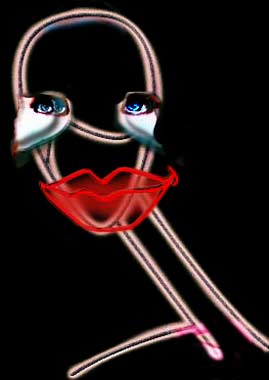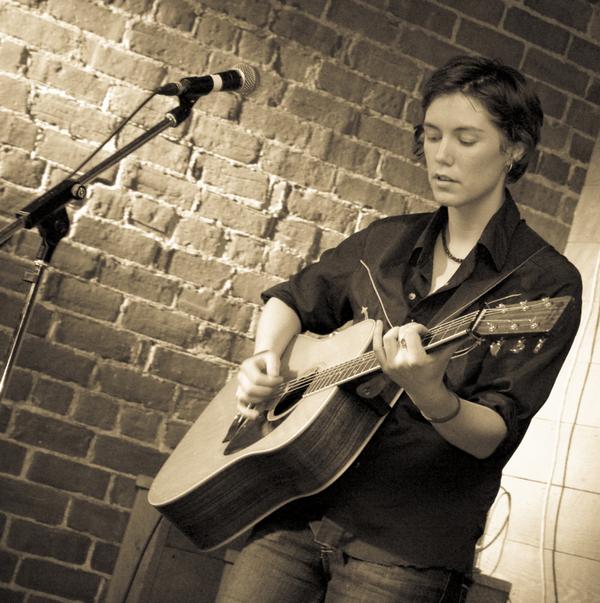Close Encounters
by Laura Fissinger'Water' On the Brain
On her third album, Canadian singer-songwriter Catherine MacLellan finds possibilities in the rhythms of people coming and going
The moment the promo video on Catherine MacLellan's web site started to play, it pulled a "Wizard of Oz" and dropped me into my former home state of Minnesota.
Minnesota borders on Canada, physically and creatively. MacLellan seems happily rooted in the folk-influenced soundtrack of that aesthetic habitat, with its deep and defiant love for do-it-yourself, think-for-yourself arts culture.
Water in the Ground, MacLellan's third CD, tastes somewhat like those pristine, far north rivers and lakes. But Catherine isn't one of the indie singer-songwriter/folk artists creatively constrained by their home region. MacLellan's lack of cluttered, commercial instrumentation, arrangements, and production could come out of any number of regional roots scenes, in Canada or the States. Water in the Ground, first and last, trusts its own heart, intellect and abundant droll humor.
Its 12 tracks were laid down in a studio on Prince Edward Island, Canada's smallest province, with approximately 139,000 year-round residents—and an annual tourist influx of one-million-plus people. Water's spirit drums and dances to those rhythms of people coming and going, including the artist herself. At the start of the title track, she hangs a timeless rock 'n roll visual image for every kind of movement and change: "I've been waiting for you here/I don't have to fear that you won't arrive/I'm going for a drive all around the world/When I return I will be your girl."
It's only one of the many times the minimalist poet indirectly alludes to one of her fascinations and lyrical cornerstones. The sadness of absence isn't something to avoid—it's a season, a natural, recurring state in the cycles of human emotion.
Catherine MacLellan: Water In the Ground, first and last, trusts its own heart, intellect and abundant droll humor.
Photo by Erin KellyUnlike MacLellan's slower, pensive first CD, Dark Dream Midnight, Water in the Ground depends more on the kick of tempo. MacLellan takes on the role of streetcorner busker, using the jaunty rhythms of shuffles and mid-tempo steppers to celebrate all kind of beginnings and ends, ups and downs, hellos and goodbyes. Constantly, she reminds herself of the possibilities in every one of those situations.
The singalong grin of the disc opener, "Take A Break," sneaks in complaints about the hard work of a farm field, then shifts its attention to "working all day next to my hon'," and the great pay rate of giving something or someone your all: "You know I never worked so hard in my life/never felt so tired, felt so alive."
The conversational, tender cut to her young daughter, "Isabel's Song," celebrates the unrestrained ardor of parent for child, especially in the one-word bridge-like turnaround: "love." For "Something Gold," MacLellan tells us how there has been no way around the sadness of a major love lost, how she hurt after removing her wedding ring. But the unbreakable metal it's made of "can be melted down/and lost love, it can turn around." Choosing to let go of the shadows allows her to transform the metal and the shadows themselves into a substance of beauty and value, equally unbreakable.
"Flowers on Your Grave" closes this treatise by looking the scariest sorrow right in the eye; God bless MacLellan, she doesn't even try to act brave. Instead, she leaves a couple of gifts for the deceased that are gifts for her, and for us, too.
She uses a string to tie around the headstone, just to let her loved one know that she paid a visit. She leaves some water in the ground with her tears. She reminds herself "how laughter is the cure/it fills our empty rooms."
Music fills empty rooms, too.
Catherine MacLellan, 'Water In the Ground'The sounds claimed by parts of Minnesota, Canada and other locales of the far north—they don't tend to sound as big as their poetic themes can be. MacLellan works sparingly with a broad variety of folk, roots, country and bluegrass instruments: acoustic and electric guitars, mandolin, accordion, upright bass and cello, harmonium, piano and very low-key percussion.
It would be nice to hear her dare to mess with some rock drumming someday. In the meantime, it's MacLellan's singing that first walks into an empty room and changes it. Don't lean on any comparisons, like the ones to Joni Mitchell—MacLellan has her own delicious ease skiing over turns and slopes and little hills in her music and lyrics. She lets that topography maneuver her into note changes, pauses, pulses.
In her current PR video (at www.catherinemaclellan.com), MacLellan says she wants two things in life—to be a good mother, and to be a good musician who makes a living playing music. I'm not good at anything else, she adds with a typical, wry glance at the camera.
For what it's worth, Catherine, I think we ought to help you make that living. But you'd better keep making the music for a lot of years to come.
Neon Laura image by Laura Fissinger.
Have something to say to Laura Fissinger? Write her at lauopti_46@yahoo.com.
THE BLUEGRASS SPECIAL
Founder/Publisher/Editor: David McGee
Contributing Editors: Billy Altman, Laura Fissinger, Christopher Hill, Derk Richardson
Logo Design: John Mendelsohn (www.johnmendelsohn.com)
Website Design: Kieran McGee (www.kieranmcgee.com)
Staff Photographers: Audrey Harrod (Louisville, KY; www.flickr.com/audreyharrod), Alicia Zappier (New York)
E-mail: thebluegrassspecial@gmail.com
Mailing Address: David McGee, 201 W. 85 St.—5B, New York, NY 10024
Founder/Publisher/Editor: David McGee
Contributing Editors: Billy Altman, Laura Fissinger, Christopher Hill, Derk Richardson
Logo Design: John Mendelsohn (www.johnmendelsohn.com)
Website Design: Kieran McGee (www.kieranmcgee.com)
Staff Photographers: Audrey Harrod (Louisville, KY; www.flickr.com/audreyharrod), Alicia Zappier (New York)
E-mail: thebluegrassspecial@gmail.com
Mailing Address: David McGee, 201 W. 85 St.—5B, New York, NY 10024


